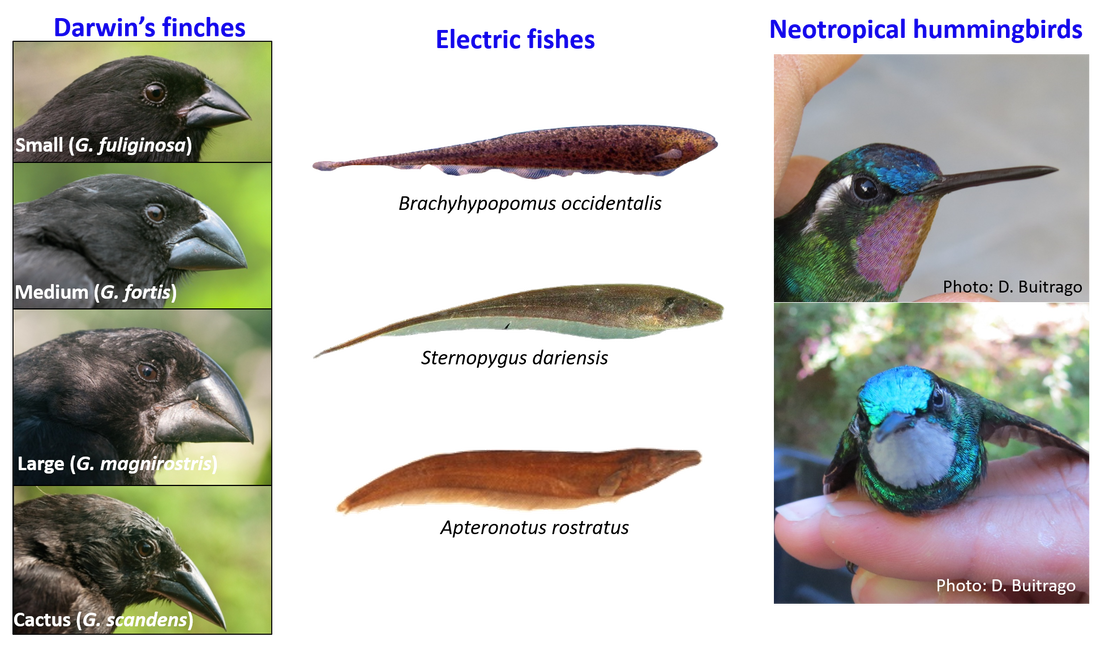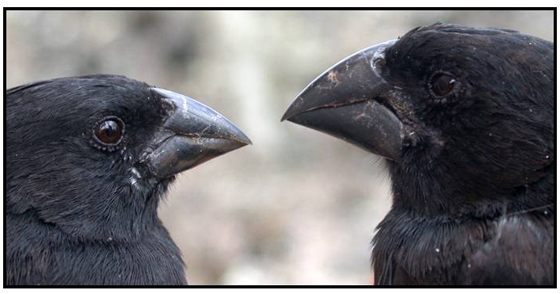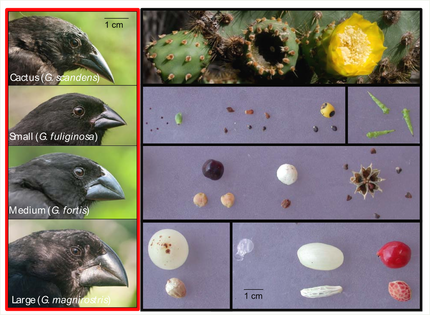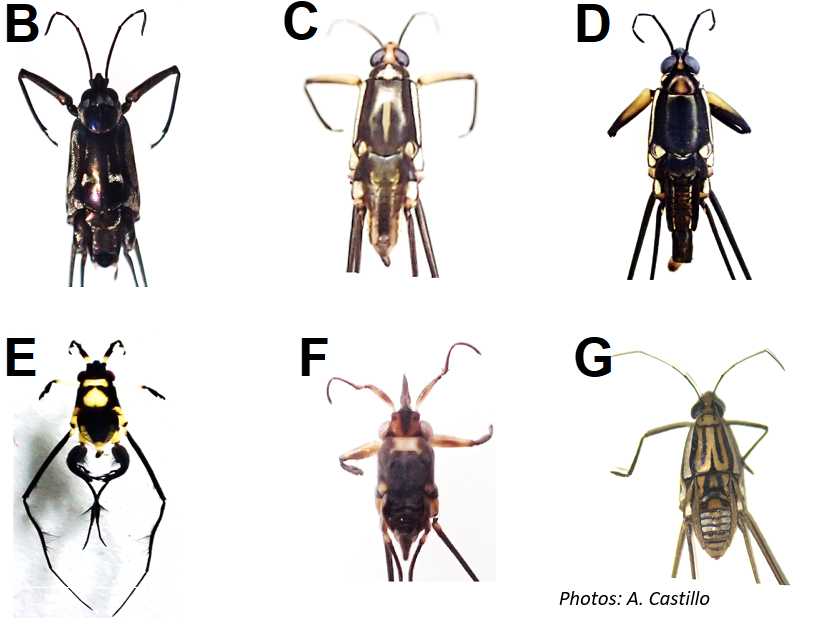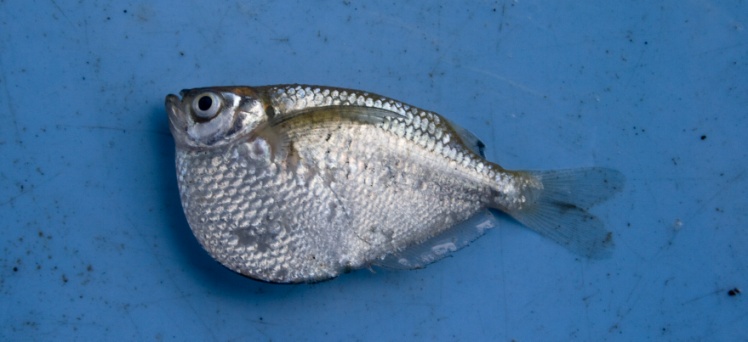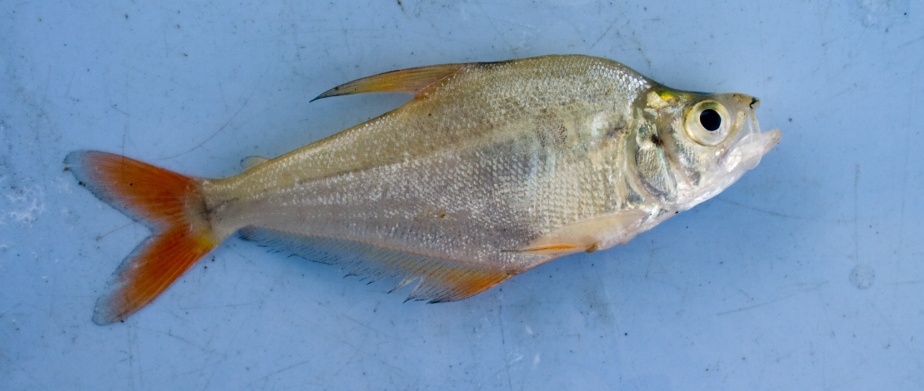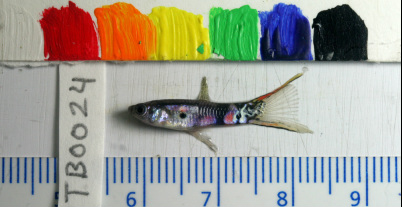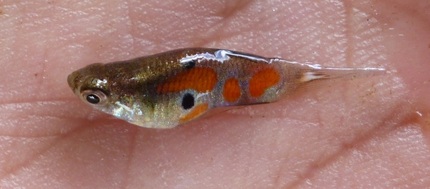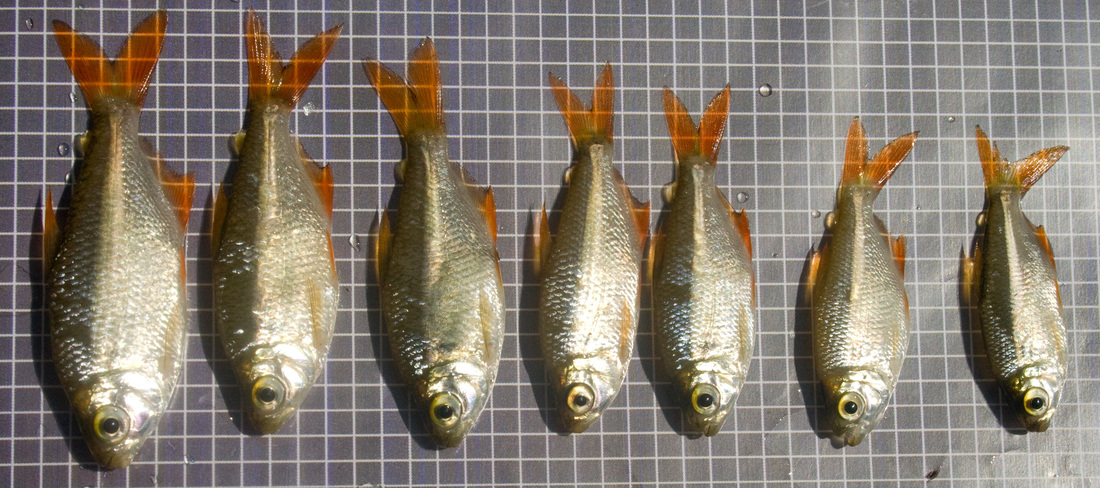We study evolutionary ecology in a variety of organisms, including bird, fishes and insects
|
Some specific projects include:
Adaptive divergence and speciation Some of our research focuses on understanding the micro-evolutionary processes that determine adaptive diversification in natural populations. For instance, we study how ecological differences can promote and maintain morphological and genetic divergence within populations and among species of Darwin's finches. |
|
Eco-evolutionary dynamics
So far, our research has mostly focused on how ecological changes influence evolution in natural populations. However, we are also interested in the opposite effect: how do evolutionary changes influence ecological dynamics? This interaction between ecology and evolution is known as eco-evolutionary dynamics, and is the focus of my ongoing research looking at the interaction between finches and plant communities. |
Genomics of diversification in weakly-electric fishes
Electric fishes produce a bioelectric field through the discharge of an electric organ (EOD). These fields are used to localize objects and prey, and are involved in mating and social interactions. This project attempts to understand the factors shaping these electric fields, and their role in determining evolutionary trajectories and diversification in these fresh water species. We also use next generation sequencing tools to determine the genomic consequences of diversification in electric fishes.
Other organisms we study
Neotropical water striders
Introduced Guppy (Poecilia reticulata) populations from Panama
Astyanax ruberrimus Eigenmann, 1913
A typical river from the Caribbean slope of Panama.
© Copyright 2014. De León, L.F. All rights reserved.
